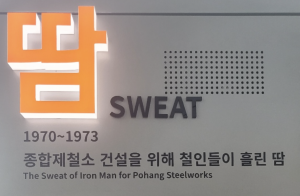Pohang: POSCO Museum
Photo essay of wall text of POSCO Museum of Pohang

Photo essay of wall text of POSCO Museum of Pohang

XXX


Enviornmental injustice researcher's program pages.

Collections of readings that examine and conceptualize environmental injustice.
The article uses Fukushima as a catalyst to progress the discussion of creating a effective Nuclear Emergency Response Team. Schmid uses the examples of the unexpected flow of events to support the unprecedented need for a diverse group of individulals, not just "Scientific Elites". She compares the responses fromthe 1979 Three Mile Island incident to the current state of respond to show how little has changed dispite the short lived boost in attention.
“The smell of death was overpowering the moment a relief worker cracked open one of the hospital chapel’s wooden doors.”
“The physician, Anna Pou, defended herself on national television, saying her role was to “help” patients “
The main arguement is that there needs to be a larger emphasis on the biosocial understanding of medical phenomina, to help prevent or reverse disease infection in low income, diverse, or war strikin communities.
Doctors without Borders is a group that not only responds to emergencies and disasters, they also create predictions to problems that are affecting third-world communities. The research that best embodies this is the research conducted regaurding the 'Effect of Mass Supplementation with Ready-to-Use Supplementary Food during an Anticipated Nutritional Emergency' they used this information gathered in Niger to prove that with early intervention in children ages 6 to 23 months you can reduce mortality rate in areas at risk for nutritional deficiency crisis'.
This article has been referenced at least once in 'Making Sense of Disaster' by Howard Davis which focuses on response to acute human disasters.